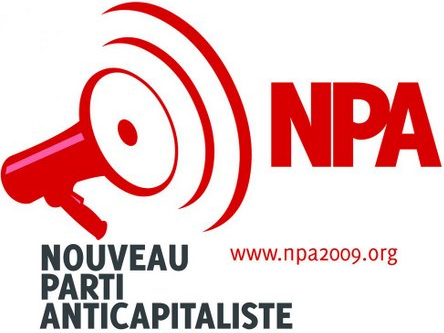This article by Nick Wrack will appear in the summer edition of Socialist Resistance
The acronym for Respect – Respect, Equality, Socialism, Peace, Environment, Community and Trade Unionism – is a little contrived, to say the least. But I like it. It locates the party in a particular political tradition, clearly of the left and identifying itself absolutely with the organised working class in the trade unions. Even with reduced union membership of 7.5 million members, this is still potentially the most powerful force in British society.
At Respect’s inception in January 2004 and in the years following, the P for peace was perhaps its most important political rallying call. Respect rightly emphasised this aspect of its programme, in order to give voice to the widespread anti-war sentiment. It was especially successful in winning support among Muslim voters in east London and Birmingham.
Over time, however, the war in Iraq has receded as an issue, although it looms large in the background and still has the capacity to force its way to the fore. In fact, Respect has an extensive programme on the whole array of political, economic and social issues normally dealt with by a political party. If it is to develop, Respect has to develop this wider political programme and ensure that its potential supporters know what that programme is.
The seven words of the acronym in fact sum up the political programme of Respect extremely succinctly. They indicate an aspiration for a better, more equal society, one free of exploitation, in which there is no discrimination on the basis of colour or creed; where there is no privileged or superior class lording it over everyone else.
Words like ‘respect’, ‘equality’, ‘peace’, ‘environment’ and ‘community’ could, of course, be used by any political party. Even New Labour and the Tories will claim to be in favour of peace despite having voted for war. Every politician will say they are in favour of ‘respect’ and of advancing the interests of the ‘community’. Which politician is going to say that people should be treated unequally? And nowadays it is axiomatic that every party is green, claiming to be concerned about the environment.
What makes these words have a very specific meaning in the acronym, however, is the fact that Respect is clearly identified as a working-class party. This immediately gives a specific ‘class’ content to words that would otherwise be vague abstract nouns, with little content, capable of meaning everything and nothing.
The first task of everyone in Respect is to build it as a party that stands for and defends working-class interests.
Interests of the working-class
There will be progressively-minded people from the middle classes and even a few rich individuals who share our hatred of war, oppression, poverty and inequality and who will identify with the programme of Respect. But the starting political standpoint of Respect is to advance the interests of the working-class.
In this context, the words in the acronym become much clearer. We are talking about ‘respect’ for millions of working-class people who get none from the political classes. New Labour, especially, has taken a deliberate decision to disregard Labour’s traditional core working-class voters and to concentrate instead on trying to win the middle classes. What it fails to appreciate, however, is that its working-class base cannot be taken for granted forever. And more and more middle-class voters are finding they face problems that the neo-liberal policies of New Labour cannot solve – inflation, the credit crunch, the housing crisis, declining public services caused by privatisation and more.
‘Equality’ must mean more than fighting against racist, sexist and all types of discrimination, which is a position claimed now even by David Cameron’s conservatives. ‘Equality’ has almost become the great taboo word of political discourse. Everyone waxes on about ‘equality of opportunity’, while doing nothing to create the conditions for it to exist. But the idea of creating equality in society is one none of the mainstream parties argue for. It is now a position shared by of all of them that there is nothing wrong with inequality in itself. All the state should do, they reason, is to provide a very basic safety net for those at the very bottom and create ‘opportunity’ for those to get themselves out of this position.
For Respect, ‘equality’ has a much wider meaning – of trying to establish a society in which everyone is equal; where there is no division between rich and poor, the ‘haves’ and the ‘have-nots’.
Thatcher famously said, ‘there is no such thing as society’ and she set about trying to prove just that by smashing up mining communities in the great strike of 1984-5. When Respect champions ‘community’, it is clearly understood to mean working-class communities and minority ethnic communities, those that suffer disproportionately from poor housing, unemployment and bad health – all problems stemming from poverty.
Most working-class people understand from their own experience that they live in a society divided sharply be class. There is an intuitive, if not scientific, understanding that the wealth of the richest in society is achieved only through the exploitation of the vast majority. While a few hundred thousand of Britain’s richest people enjoy a life without worry, millions of workers and their families live from week to week struggling to pay bills or to afford a holiday. Those millions are only ever a week or, at most, a few months away from poverty. Over-extended in credit, with mounting inflation and rising interest rates, most ordinary people are forced to work harder and for longer each week to make ends meet.
While newspapers, TV and films try to sell the mirage that anyone can achieve the lifestyle of the rich and famous, most understand how far-fetched this is. For ordinary working-class people there is no way out of the daily struggle to bring up their families. Only collective struggle at work or in the community can advance the interests of each individual.
Unfortunately, there are very few, if any, real examples of collective struggle to look to in contemporary Britain. The last great experience of collective working-class industrial struggle was the miners’ strike in 1984-5, over 23 years ago. In 1989-91, the anti-poll tax campaign, in which 14 million refused to pay the unfair and regressive tax, showed how collective struggle could defeat a hated attack on working-class people.
Class struggle and solidarity
We now have generations who have not experienced such class struggle and solidarity. The lessons of collective struggle are, for the majority of people in Britain under the age of thirty-five, unlearned. It will only be on the basis of new struggles that working-class solidarity, in support of fellow workers in struggle, will be experienced firsthand.
But history is replete with examples of working-class struggle in Britain and internationally. While the class struggle is temporarily at a low point in Britain, and has been for a long time, we can look to other countries to see sharp struggles taking place. The experience of working-class people must be a shared one, learning from successes and defeats.
Today, we are only just beginning to see the first flexing of the collective muscles of public sector trade unionists over pay claims. After years of defeat and a feeling of weakness, below-inflation pay offers are forcing workers to stir. It is unlikely that, after years of limited industrial struggle, trade unions will rush to launch all-out offensive battles. This depends on leadership as well as the fighting spirit of union members. But slowly, the class will begin to recover its strength and its confidence.
When workers go into struggle everything is transformed. There’s nothing like a fight of one group of workers to bring the rest of the class to its feet; not just cheering on from the side-lines, but actively involved in picket lines, demonstrations, fund-raising and other acts of solidarity. Though such things may seem off the horizon at the moment, there is no doubt that the horizon will come into sharp relief.
That is why Respect must be involved in every struggle that takes place, big or small. It is inevitable that big battles will take place. The role of socialists is to point to the need for change, and to show how change is possible.
Workers have understood for centuries that they have to be organised in the workplace, through trade unions. Without this basic organisation the bosses will trample on all aspects of workers’ lives – pay, conditions, pensions, health and safety.
Similarly, outside work, workers need to be organised politically. This was understood by the pioneers who set up the Labour Party at the end of the 19th Century. At that time, there were only two parties to vote for; the Tories and the Liberals. Both were parties of the bosses, the rich and the privileged. The Labour Party was created to give a voice for workers outside the workplace – to fight politically. There were inherent fault lines built into the fabric of the Labour Party from its inception, with the gradualism of the Fabians and the conservatism of sections of the trade union bureaucracy at odds with the aspiration for fundamental change that led many socialists and workers to support the Party. These contradictions have, so far, been resolved in favour of Labour’s liberal wing – New Labour – rather than the socialist.
How do we define ourselves?
So now we have a similar situation. New Labour, the Tories and the Liberal Democrats all represent the interests of the rich and privileged. They all defend an economic system that exploits workers to create vast profits which are only enjoyed by a tiny few. This system is capitalism. It exists for the benefit of the minority at the expense of the majority.
Respect stands opposed to the policies of neo-liberalism, which are supported by all three of the established parties. But there now needs to be a thorough discussion within Respect about what it stands for. To be against the policies of privatisation and pay restraint is absolutely essential. But we need to start saying what we are for. We cannot define ourselves just in terms of what we oppose.
We should not only be against the neo-liberal policies pursued in the interests of the capitalist class but against capitalism itself. And if we are, what do we want in its place?
This is where, for me, the key word in the acronym comes in. ‘Socialism’ has to be at the heart of Respect. This marks Respect out as being completely different from New Labour, the Tories, the Liberal Democrats and the Greens.
It states that we believe there is a different, better, way of organising society. Instead of the majority of society working to create wealth for a few, production would be for the interests of all. There would be democratic decision-making about how the resources of society would be used. Would we really decide to spend £75 billion pounds to create a new generation of nuclear weapons, which will never be used; or to give £12.5 billion in bonuses to a few hundred City workers? Or would that money, in a rational society, be spent on other things – care for the elderly, the sick, and the young; housing for all; sports facilities for young people?
Socialists want to change society fundamentally. Until we are strong enough to effect complete change, the working-class has to fight to defend what it has previously won, and to fight for further reform. Socialists must be the best fighters for reforms, while all the time explaining why we must go further. In this period of capitalism, it will be even harder for capitalism to deliver real reforms, which will only be won by the most determined struggle.
So long as capitalism exists working-class people will constantly have to fight for improvements to their daily existence. But every victory remains at risk until we create a society in which we do not need to constantly fight. So, while we fight for reforms, those fights must be linked to a more fundamental change in the way society is run – for a society run by, and in the interests of, the working-class.
Respect must present a vision of a different society. That must be its distinct appeal.








